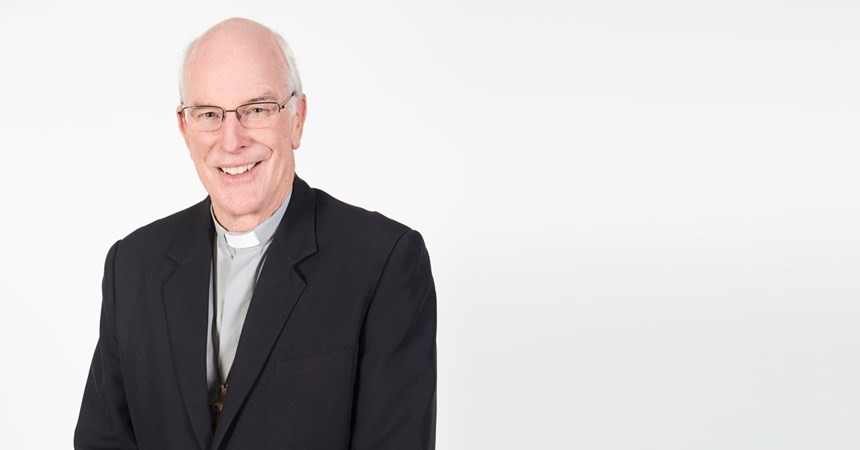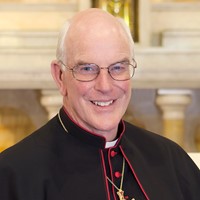I began to resent this, as I recall, back in the ‘seventies when figures like the Rev Fred Nile somehow came to be accepted as expressing ‘the Christian position’ on matters of the day like ‘victimless crime’ law reform, licensing laws, gambling and so on. To me, the puritan, ‘wowser’ tradition never represented the views of most Christians in Australia, so how did they come to be accepted as the public face of Christianity, the ‘Christian lobby’?
My reason for mentioning this now is that I’ve been irritated more than usual lately by letters to the editor and talkback callers who blithely identify Christians, indeed religious believers more widely, with the really rather tiny groups whom the rest of us call ‘fundamentalists’. You know, we get these types of comment on any church-related story: ‘What do you expect from people who believe in an old man in the sky who made the world in seven days?’ Sometimes the barb is a bit more sophisticated, but the identification of Christians with fundamentalists is generally a large part of it.
Actually, Fundamentalism is a small and quite recent phenomenon in Christian history. If I may quote from Diarmaid MacCulloch’s 2009 book A History of Christianity: “Fundamentalism is a distinctively Protestant idea, because it centres on the Reformation way of reading the Bible. Reformation Protestantism turned its back on most of the ancient symbolic, poetic or allegorical ways of looking at the biblical text, and read it in a literal way.” There are a few things to be said here: first, that despite his Irish-looking name, MacCulloch is an ex-Anglican, son of an Anglican rector of Suffolk; second, that he is quite right that the ancient teachers whom we call ‘Fathers of the Church’ were extremely adept at recognising symbolic and non-literal meanings in the Scripture, and third, that while Fundamentalism may be “a Protestant idea”, not all Protestants are fundamentalists; indeed very few are.
Broadly, Fundamental-ism is a child of the American Bible belt of the late nineteenth and early twentieth centuries. Some of those evangelical Christians thought that Darwinian evolutionary theory and liberal theology threatened the authority of the Bible, and the name Fundamentalism actually derives from a mammoth twelve-volume series of essays, The Fundamentals, that they published in the ‘States between 1910 and 1915. Otherwise, looking across the Christian spectrum, most scholars took the arrival of evolutionary theory, geological dating of the earth and so on, with remarkable equanimity. So, again, I dislike the way fundamentalist groups are taken as representing the ‘good ole religion’, as if all Christians once thought as they do. No, biblical fundamentalism is the innovation. Just as the ancients knew that the world was round, despite our myth about Columbus coming up with the idea, so they knew that the Bible was full of imagery and symbol, despite the fundamentalist myth that all Christians took the Bible absolutely literally until some time last week. Way back in the second century, Origen, one of the earliest ‘Fathers’, had speculated that the world as we know it may have developed from the simple ‘seeds’ of things that God had produced at Creation. He was quite unfazed that the Book of Genesis told a different story, knowing that ‘science’ was not what Genesis was about. So can we please not have ‘Christians’ identified with biblical fundamentalists? Three-quarters of the world’s Christians, after all, are either Catholic or Orthodox and don’t qualify for holding to ‘the Reformation way of reading the Bible’. And most Protestants aren’t fundamentalists either.
The other aspect of the misapplication of ‘Christian’ that I mentioned, the assumption that as all ‘wowsers’ are Christians so all Christians must be wowsers, is equally unfair and wrong-headed. The ‘wowser’ in Australian folklore is against all drinking, smoking, gambling and any number of other aberrations, possibly including dancing and bikinis. This is demonstrably not the stance of most Australian Christians, but somehow the expectation persists that ‘Christians’ are like that. Every priest has stories of people who are astonished when they discover that priests drink or smoke or have a bet. Every priest has stories of people apologising for doing such things in their presence, or even referring to doing such things. I used to say, “Know a lot of priests, do you?” And yet a quarter of the Australian population is Catholic, to say nothing of non-puritan Anglicans and others. How do these images persist? I am a Christian, right? And very proud to say so. Perhaps you are too. But I am not a biblical fundamentalist or a wowser. And I’m getting jolly sick of being lumped in.























































































